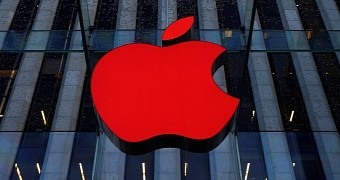Apple is close to generating $1 trillion in revenue from iOS-related products since the company announced its first iPhone device back in 2007. Apple’s total sales of iPhones and iPads, combined with its share of app sales from the App Store, will reach the $1 billion mark this year.
By mid-2007, sales from the iPhone, iPad, iPod Touch, Apple Watch and Apple TV will reach $980 billion, according to a report. Add the $100 billion in iOS services revenue generated from the App Store and Apple Music subscriptions, and you will get the $1 billion mark. These are just broad estimates, since Apple has never announced Apple Watch sales, making it difficult to actually calculate total revenue from its products.
But just days after it celebrated the 10-year anniversary of the original iPhone, the company is faced with a lawsuit over monopoly charges. Bloomberg reports that a complaint, originally filed in 2011, accuses the company of violating the US antitrust law. The complaint refers to the period between 2007 and 2013, when Apple allegedly required iOS apps to be exclusively sold through Apple’s App Store.
Apple could pay hundreds of millions in damages
Therefore, third-party developers of apps weren’t allowed to sell applications through their own stores. Apple took a 30% share of every app purchase in the App Store and increased prices for apps, as well as restricted competitors from selling the apps somewhere else, the lawsuit states.
The case isn’t a class-action lawsuit just yet, but Mark Rifkin, the lawyer for the plaintiffs believes that everyone who bought iOS apps could be included in the lawsuit. He said that Apple could pay hundreds of millions in damages to users, as millions of consumers could reclaim the 30% share that Apple received whenever an app was sold in its store.
This isn’t the first time that Apple faces such a complaint, as a lower-court judge previously dismissed the case, which has now been revived by a federal appeals court in San Francisco. Apple has stated that “it does not sell apps but rather sells software distribution services to developers.” The appeals court found the argument invalid saying that “Apple's anology is unconvincing. In the case before us, third-party developers of iPhone apps do not have their own stores."

 14 DAY TRIAL //
14 DAY TRIAL //